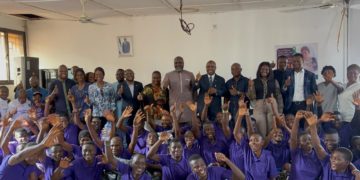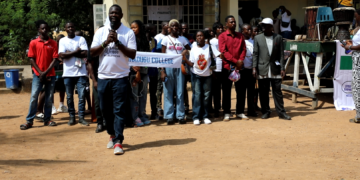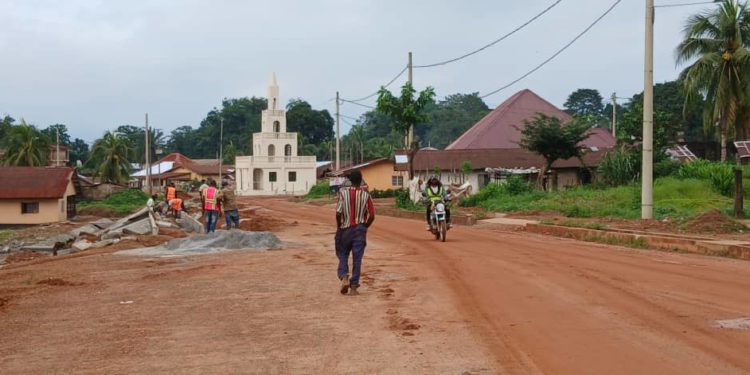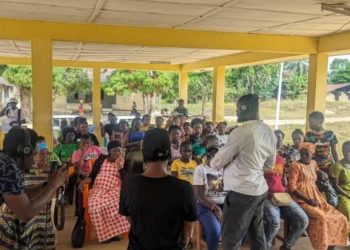By Brima Sannoh
Abu Rogers remembers the day vividly. “They dragged me off my motorcycle at the Makibie River Bridge,” he recalled, his voice still trembling. “They beat me mercilessly until I could barely breathe. I thought I was going to die right there.” At 35, Abu Rogers, a motorcycle mechanic from Gobaru Community in the Kpanga Krim Chiefdom of Pujehun District, southern Sierra Leone, lives with the trauma and physical scars of that brutal day. His peaceful journey home turned into a nightmare when, after a day of work in Pujehun town, he was ambushed by a mob on the bridge, a mob, he says, accused him of being affiliated with the ruling Sierra Leone People’s Party (SLPP). “I saw a group of men wearing red T-shirts signalling me to slow down. I assumed they were warning me about the bridge ahead. Instead, they surrounded me, shouting in Krio that I was ‘one of the SLPP guys’ and started attacking me with sticks, fists, anything they could find.”
By the time neighbours intervened, Abu was left battered, bloodied, and barely conscious. He was rushed to the Pujehun Government Hospital, where he spent over a month recovering. Yet, the consequences endure: a permanent back injury and, perhaps more painfully, the absence of justice. Not a single perpetrator has been held accountable.
Meanwhile, Abu’s story is not an isolated case. Thomas Kamanda, a 67-year-old retired schoolteacher from the same community, recalls his ordeal with similar horror. “They broke into my house, destroyed everything, and set fire to the back of the building. I escaped with my life, but I lost all my valuables, including my life savings.” Kamanda, known locally for his support of the SLPP, believes his political leanings made him a target. The violence did not spare his family: his 20-year-old son was beaten unconscious during the rampage and required days of hospital care to recover.
Currently, Pujehun is not alone. Across Sierra Leone, political tensions have been escalating. The country still reels from the August 8-10, 2022 protests in Freetown, which resulted in multiple deaths, including police officers. Similarly, the June 2023 general elections saw violent clashes between the SLPP and the opposition All People’s Congress (APC), laying bare the fragile state of peace. Despite these troubling episodes, Sierra Leone’s international reputation for peace persists. In the 2025 Global Peace Index, the country was ranked 57th globally and 5th in Africa, a recognition of progress made since the civil war’s end in 2002. Yet, in regions like Pujehun, the undercurrent of political violence tells a different story.
In Pujehun, both major parties trade blame. Sheik Denis Mohamed Dugba Swaray, APC District Secretary, rebuffed accusations that his party fomented unrest. “It was the SLPP who started the violence. During the 2023 elections, our flag bearer was blocked from entering Pujehun. Our members were attacked with machetes, sticks, acid, and pepper spray, and no one was held accountable.”
In the aftermath of President Julius Maada Bio’s re-election in June 2023, APC supporters allege systematic targeting. Fatmata Tarawallie, an APC supporter, described being forced to flee. “We were given notices to leave or face consequences. They vandalised our homes and shops. We had no choice but to abandon everything.”
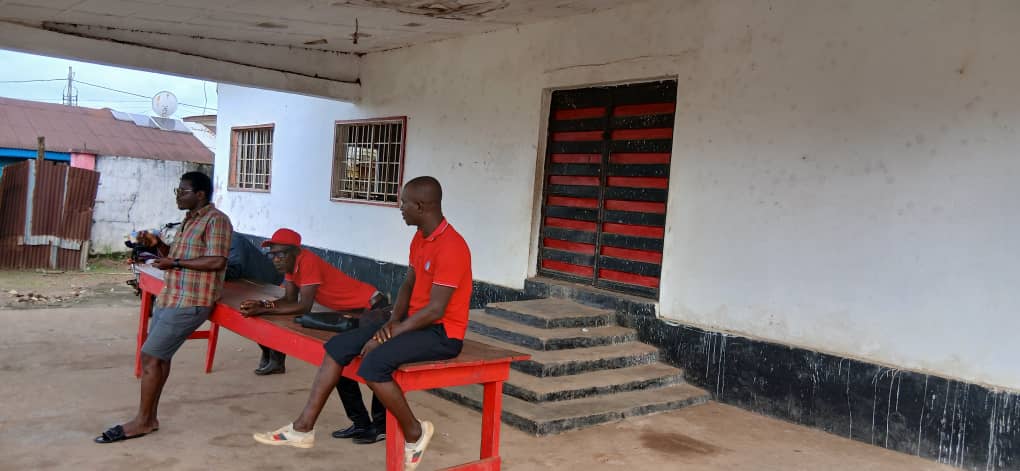
Sierra Leone’s Truth and Reconciliation Commission (TRC), in its 2004 report, traced the roots of the civil war to political grievances, marginalisation, and the repression of the 1970s and 80s. The TRC urged the strengthening of democratic institutions, judiciary independence, and free and fair elections. Yet, 25 years after the war, civil society groups argue that these recommendations remain largely unimplemented.
Ibrahim Borgiwa Swaray, a leading civil society activist, voiced his dismay: “It is deeply disturbing to see citizens attacked merely for their political beliefs. The government must establish robust mechanisms to deter election violence and ensure that perpetrators face swift justice.”
Consequently, the violent events in Pujehun serve as a sobering reminder of the fragility of Sierra Leone’s peace. The country may have made strides on the international stage, but internally, unresolved grievances, political intolerance, and weak accountability mechanisms continue to sow division. “The safety and security of all citizens must be guaranteed, regardless of political affiliation,” Swaray concluded.
In the meantime, as the dust settles on the 2023 elections, the need for decisive action is clearer than ever. Sierra Leone’s democracy, still in its adolescence, demands institutions that not only prevent political violence but also address its root causes. For survivors like Abu Rogers and Thomas Kamanda, justice remains elusive. But their stories, of pain, loss, and survival, echo a collective plea: that Sierra Leone’s hard-won peace must not be allowed to slip away.
This report was produced with support from the African Transitional Justice Legacy Fund (ATJLF), through the Media Reform Coordinating Group (MRCG), under the project Engaging Media and Communities to Change the Narrative on Transitional Justice Issues in Sierra Leone.





